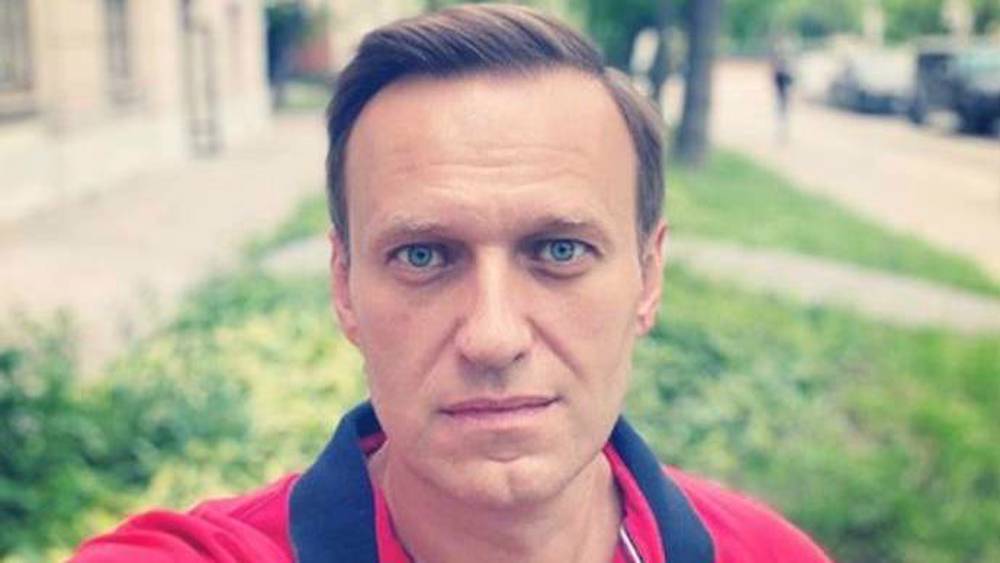Russia to open probe into possible bid to murder Navalny: Report
Russia’s Investigative Committee has reportedly called on one of its regional branches in Siberia to conduct an investigation into the possibility that someone may have attempted to murder Kremlin critic Alexei Navalny.
The Friday development came amid claims by Germany that Navalny was poisoned with a Novichok nerve agent while demanding prosecution of the perpetrators despite Russian insistence that no proof of such poisoning has been provided by Berlin and its own medical examination of the opposition figure did not show any traces of chemical poisoning.
Russia has not opened a criminal investigation into the case, pointing out that no evidence of a crime has yet been produced.
This is while the German daily Welt am Sonntag reported Thursday that the German Justice Ministry has received a request from Russia for legal assistance in Navalny’s case, coming after the Russian prosecutor general’s office announced this week it had asked Berlin to share the clinical findings and preliminary diagnoses of the German physicians examining the 44-year-old patient at Berlin’s Charite hospital.
Russian presidential spokesperson Dmitry Peskov had stated earlier in the week that there was no reason to open a probe into Navany’s sudden illness due to the lack of clarity on what caused his condition.
The dissident fell ill on a flight to Moscow last week and was transferred to a hospital in the Russian city of Omsk after an emergency landing. Doctors there subsequently found no trace of any poison in his blood or tissue samples and said that the deterioration had been caused by an abrupt drop of glucose in his blood due to a metabolic imbalance.
NATO to meet over alleged poisoning of Navalny
Meanwhile, press reports on Friday also said the US-led NATO military alliance would convene a special meeting later in the day to discuss the alleged poisoning of the Russian opposition figure and blogger.
According to the report, NATO Secretary General Jens Stoltenberg was due to hold a press conference following the meeting.
“Germany announced Alexey Navalny was victim of a Novichok attack. I utterly condemn the use of a military-grade nerve agent, which makes it even more urgent that Russia conducts full & transparent investigation. We’ll consult with Germany & all #NATO allies on the implication,” Stoltenberg said in a Twitter post Wednesday.
However, Peskov insisted on Thursday that the West should not rush to judgement over the alleged poisoning of Navalny, firmly rejecting any suggestion that Moscow had been behind any attack on Navalny and warning other countries against jumping to conclusions without having the full facts.
His remarks came a day after German Chancellor Angela Merkel said Navalny had been poisoned with a Soviet-era Novichok nerve agent in an attempt to murder him and that she would consult NATO allies about how to respond.
Moreover, Moscow has condemned Berlin for its failure to cooperate with Russian authorities over the alleged poisoning of Navalny, saying the German narrative that the Russian opposition figure was poisoned with a nerve agent lacked evidence.
In televised comments, Russian Foreign Ministry spokeswoman Maria Zakharova said Russia's Ambassador to Germany Sergei Nechayev, who was summoned to the ministry Wednesday, asked for evidence and received “no answer, no facts, no data, no formulae.”
“Russia as before expects an official answer from Berlin to the request of the Prosecutor-General's Office” to share medical data on Navalny, she said.
The Russian Prosecutor-General’s Office requested the preliminary diagnosis from the German hospital for a comparative study, Russia’s TASS news agency on Wednesday cited the RBC newspaper as reporting.
The office of the prosecutor general demanded medical documents and research by German specialists, both during Navalny’s transportation from Russia to Germany and in the course of his stay in the clinic.
“We request to collect Navalny’s biomaterial for comparative study (blood, urine, saliva, hair, profiles of nail plate, and buccal epithelium),” the request read.
Trump 2.0 and its possible implications on Ukraine war, NATO and Europe
Israeli commander exposed troops to resistance fire to steal plasma screens
Iran lifts ban on WhatsApp, Google Play
VIDEO | Palestinian childhood under threat
Yemeni forces strike Israeli military site with hypersonic missile
Yemeni missiles alter US, Israel’s calculations: Iranian FM
Israel provides full support for theft of aid to starve Gazans: Report
'Israel booby-trapped walkie-talkies, pagers years before Lebanon blasts'















 This makes it easy to access the Press TV website
This makes it easy to access the Press TV website